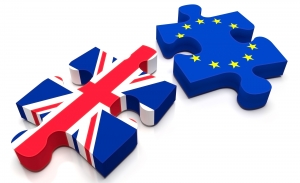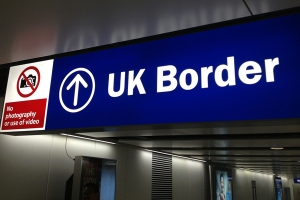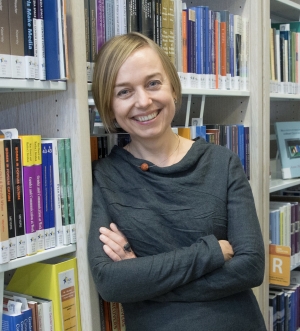
Image credits: Global Research
by Ania Plomien
It is results day for the UK Referendum on membership of the European Union and I am on my way to Bucharest to give a talk on inequalities in contemporary Europe. Waiting to board the flight I catch fragments of speeches sprinkled with words like ‘inclusive’, ‘tolerant’, ‘generous’, ‘progressive’ and ‘European’. Condescending, as they are spoken by the Brexit champions. Alarming, as I follow a growing number of reports from across the UK of racism and threats aimed at migrants and non-migrants alike. Whilst it is possible to make sense of Brexit as an expression of growing socio-economic inequality, the sexism and racism that has been unleashed is not so easily understood.
A conversation I had with a builder renovating the flat I moved into when I arrived in the UK almost a decade ago shows how complex issues of the economy, social policy, and migration play out on a daily basis. Asked why there weren’t any sockets in the bathroom, he responded that ‘it is because of Brussels’ and ‘all these regulations from the EU’. We went on to talk about the Polish plumbers that the builder employed: their skills, work ethic, and wages. The connection between EU red tape and sockets did not persuade – I was, after all, able to use a hairdryer even in the bathrooms in Brussels. However, the links between labour mobility, skills and wages and their impact on livelihoods did illuminate how interdependent life across the EU has become.
Research with men on the relationship between gender, migration and domestic work[i] shows the way migrants negotiate the multiple processes involved in the pursuit of life projects via migration. For instance, Fryderyk, a Polish handyman, said: ‘I planned to go to Holland, but the Dutch parliament didn’t allow Polish people to work legally there. I could open a business, but my wife couldn’t work legally so she would have, I don’t know, quite a bad job cleaning or something like that, and she didn’t want to do this because she’s a teacher’.
These experiences suggest that commonplace convictions that the EU is responsible for that which is negative, inconvenient, or difficult to explain circulate alongside – less frequently – recognition of the privileges and opportunities that come from membership in the EU. They also show that macro-level economic, social and migration processes play out at the interpersonal level of everyday life. Finally, they reveal that gender, while under examined, is integral to all these dimensions and debates– as a recent Gender Institute event has shown.
The economic, social and migration nexus
Throughout Europe migration, asylum and refugee policies are amongst the most heated political issues. The regulatory framework of the EU divides and categorises people into EU citizens and third country nationals, ranging from those with opportunities to engage in work or study to those who are forced to seek asylum for fear of persecution. These stratifications are deeply gendered.
Although the category ‘women and children’ comprise 85-90 per cent of the world’s refugees, adult men make up 90 per cent of asylum applications[ii]. Disproportionately affecting women, national regulations permit breadwinners to bring dependants but dependant wives face barriers to employment, lack of recognition of their qualifications and deskilling. In the UK, the labour force participation of foreign-born women lags behind that of both native-born women and foreign-born men[iii].
There are clear problems with the EU treatment of migration but the introduction of a number of initiatives promoting family reunification rights, granting equal protection in social security to permanent third-country nationals, recognising qualifications and prohibiting discrimination have been taking us in the right direction. These initiatives provide minimum protection floors and encourage coordinating and voluntary measures, leaving member states with considerable autonomy.
The EU record on gender equality, which mainly addresses women in employment, warrants a similarly considered verdict. Although women are a heterogeneous group with a wide range of priorities, it is possible to identify the benefits of EU membership to women across the spectrum in the areas of labour protection and enhanced social welfare. These include rights for part-time workers, working time regulations with limits on maximum working hours and provisions for break periods and paid leave, regulations and judgments on equal pay, childcare targets, and maternity and parental leave. Complementing these established initiatives are actions on pensions, political representation, and gender based violence.
Again, these policies leave much to be desired, but the UK is not just a passive recipient. The process surrounding the Pregnant Workers Directive provides a telling example. In 2008 the European Commission proposed raising the minimum number of weeks of maternity leave from 14 to 18 and endorsing the principle of full pay. The European Parliament amended the proposal to 20 weeks paid maternity and 2 weeks paid paternity leave. This was blocked by member state governments – notably by the UK and its business lobby. After a stalemate of seven years the Directive was withdrawn. This illustration speaks to the kind of power the UK holds within the EU, and stands in contrast to control over migration.
The total annual net migration to the UK is running at over 300,000, exceeding the government’s target of under 100,000. Estimates for 2014 show that 13% of people who migrated to the UK were British nationals, 42% were nationals of other EU countries, and 45% were nationals of non-EU countries. The number of British migrants living in other EU countries is estimated at 1.2 million, whereas around 3 million of EU migrants live in the UK.
What explains migration to the UK? The skill and labour shortages across the UK economy in the 1990s led to growth in labour migration, both into feminised sectors (education, health, retail and hospitality) as well as sectors dominated by men (ICT, business and finance)[iv]. Labour market flexibility and the relative ease of hiring and firing sustain this process. These pull factors ‘importing’ workers run alongside push dynamics as people move from countries with lower productivity and wages. The 2004 EU enlargement made this particularly evident.
Empirical analyses show that EU immigrants pay more in taxes than they withdraw in benefits and public services[v] and that it is the financial crisis, rather than immigration, that has negatively impacted services, housing, jobs and wages[vi]. Nevertheless, the positive contributions of immigrants cannot be the sole factor in shaping the decisions on migration.
The perspectives of migrants vary, but are likely to challenge the construction of migrants merely as individual units of labour. A woman (often a mother) from Poland or Romania caring for the elderly in Germany or Italy depends on the transnational care she provides for income. Paradoxically, to meet her responsibilities of securing material resources for herself and her family, she is unable to provide care for her own children[vii]. These tensions between breadwinning and caring obligations become individualised in public discourses concerning parental migration. Adam, a migrant handyman, reflected how in Poland ‘At that time when parents left the country they were rubbish because they left the child’. And when asked if they would go back if earnings were better in Poland, many shared Wojtek’s view: ‘I would go back without any hesitation’ [viii].
The personal cost of migration also entails loss of support networks, downward occupational mobility, and exploitation. Filip reflected on the impact on fathering: ‘You come from work tired and there are other things to do and you have to dedicate your free time to the child and you don’t always have that time. I would like to have time to do what I do with the boss’s children. Whatever my son would like to do, whether he wants to play football or guitar or go swimming’[ix].
These are the experiences of the relatively privileged migrants in the UK. The ability to realise work and care aspirations is much more insecure for those without the right to entry, residence, labour market access and social entitlements[x]. For Said work was important, but difficult to arrange ‘No passport? Out. Very easy, believe me. I’ve got now maybe fifteen, sixteen different payslips… everything changed, law changed, especially after the East Europeans have come’. The physical separation from his son for more than seven years was difficult to bridge with only telephone and internet contact: ‘When I was there, he was just a little boy [we had] a very strong relationship, normal for a father and a son, it was lovely (…) but [now] he’s not happy, I’d like to bring him here‘.
The contradictions become even sharper when migrant women and men take on the caring and social reproductive work which enables those with high-incomes to maintain their jobs and realise their caring obligations. Take for example Richard, a British dad, justifying the outsourcing of domestic tasks to handymen: ‘The primary reason that we do this is because I work very hard, very long hours, I’m away a lot. And when it comes to family time, we want family quality time. So this is a way of making sure than when I am there I’ve got time for [the children] rather than running around changing light bulbs and cutting the grass’. This resonates with Ted, for whom: ‘It was really a judgment; my time is limited and I can earn £4000 a day doing my job, so I need to pay other people to do stuff which costs less than that’. And so inequalities are transferred from one group to another, rather than transformed.
Given the income gaps between the UK and other world regions the migration push is likely to persist. These economic inequalities are exacerbated by a string of military interventions in the Middle East, the geopolitics of falling oil prices in sub-Saharan Africa, and crises like the Syrian civil war. An ethical response to the extraordinary situation of the recent large-scale inflows of refugees into Europe is already proving difficult. Migration management only in response to fluctuating market needs is an untenable strategy for the UK, or any state.

Image credits: David McKelvey
Uncoupling the EU-migration debate
Migration, whether from within or without EU borders, is neither a problem nor a solution. It is a process driven by multiple factors, captures a wide range of experiences, and caries costs and opportunities for individuals and societies alike. Undoubtedly, the EU has brought benefits to women and men variously positioned as migrants, workers, and carers, as well as to the UK economy. On these – as well as other – issues, the UK has definitely been better off in. Tying migration to EU membership, as the leave campaign did, denigrated the EU without demonstrating interest in a fair and safe immigration system. It also insulted those, migrant or not, concerned with rampant inequality, income and job insecurity, inadequate and unaffordable housing, under resourced health and social care systems, to name a few.
And so, given the current state of inequalities across the globe, migration, to paraphrase Gayatri Spivak, is ‘that which we cannot not want’[xi]. Not because of the contributions of migrants to the UK economy and society; not because of migrants’ own life projects; and not because migration is or isn’t the answer to inequality. Migration reveals the workings of uneven development and makes the case for the need to address them.
Should the United Kingdom have remained a member of the European Union? The Referendum campaigns fused migration with EU membership, as if either remaining or leaving could have adequately resolved it. However, it is not just that the ‘the question of migration’ cannot be contained within ‘the question of Europe’; it is that the UK needs to confront both of these questions independently and in connection with each other. Britain must face this by working out what it really means to be ‘inclusive’, ‘tolerant’, ‘generous’, ‘progressive’ and ‘European’.
This post was first published on the Gender Institute Website, on the 28/06/2016.
====================================================================
I would like to thank Emma Spruce for great help with editing this post.
On 13th June, the Gender Institute held a public discussion exploring the influence of the EU on gender equality in the UK. More information can be found here: http://www.lse.ac.uk/genderInstitute/events/eventsProfiles/201516/The-EU-and-Gender-Equality-better-off-in,-or-out.aspx
Notes:
[i] Kilkey, M., Perrons, D., Plomien, A. with Hondagneau-Sotelo, P. and Ramirez, H. (2013) Gender, Migration and Domestic Work: Masculinities, Male Labour and Fathering in the UK and USA.
[ii] Mushaben, J.M. (2012) ‘Women on the move: EU migration and citizenship policy’, in Abels, G. and Mushaben, J.M. (eds) Gendering the European Union. Palgrave Macmillan
[iii] Mushaben, J.M. (ibid)
[iv] Kofman, E., Raghuram, P., Merefield, M. (2005) Gendered Migrations: Towards gender sensitive policies in the UK. IPPR Asylum and Migration WP 6.
[v] Dustmann, C. and T. Frattini (2014) ‘The Fiscal Effects of Immigration to the UK.’Economic Journal 124: 593-643.
[vi] Wandsworth, J., Dhingra, S.,Ottaviano, G., Van Reenen, J. (2016) ‘Brexit and the Impact of Immigration on the UK’ CEP Brexit Analysis No 5.
[vii]Lutz, H. and Palenga-Möllenbeck (2012) ‘Care workers, care drain, and care chains: reflections on care, migration, and citizenship.’ Social Politics 19(1): 15-37; Mihai, Teodora Ana (dir) (2014) Waiting for August, DVD, Belgium: Hanne Phlypo & Antoine Vermeesch (Clin d’oeil films); Bettio, F., Simonazzi, A., and Villa, P. (2006) “Change in care regimes and female migration: The ‘care drain’ in the Mediterranean”, Journal of European Social Policy 16(3): 271-285.
[viii] Kilkey et al (ibid).
[ix] Kilkey et al (ibid).
[x] Kilkey et al (ibid).
[xi] Gayatri Spivak (1993) ‘Outside the teaching machine’ New York: Routledge, p 45-56.
 Dr Ania Plomien is Assistant Professor at the Gender Institute, London School of Economics. She is a member of the UK Women’s Budget Group, has served on the board of the journal Work, Employment and Society, and has been a national expert for Poland in the EU Network of Experts on Gender Equality. Her research focuses on social and economic policy, work and care from a gender perspective, especially at the EU level and in the Central East European region. She teaches courses on Gender and European Welfare States, and Feminist Economics and Policy.
Dr Ania Plomien is Assistant Professor at the Gender Institute, London School of Economics. She is a member of the UK Women’s Budget Group, has served on the board of the journal Work, Employment and Society, and has been a national expert for Poland in the EU Network of Experts on Gender Equality. Her research focuses on social and economic policy, work and care from a gender perspective, especially at the EU level and in the Central East European region. She teaches courses on Gender and European Welfare States, and Feminist Economics and Policy.


[…] ‘The EU and gender equality: Better off in, or out? Questions of inequality, gender and immigration‘ by Ania Plomien (2016) Ania Plomien explores the complexities of migration, gender and the EU. She notes that the referendum campaigns fused migration with EU membership, as if either remaining or leaving could have adequately resolved it. However, it is not just that the ‘the question of migration’ cannot be contained within ‘the question of Europe’; it is that the UK needs to confront both of these questions independently and in connection with each other. Britain must face this by working out what it really means to be ‘inclusive’, ‘tolerant’, ‘generous’, ‘progressive’ and ‘European’. […]
[…] ‘The EU and gender equality: Better off in, or out? Questions of inequality, gender and immigration‘ by Ania Plomien(2016) […]